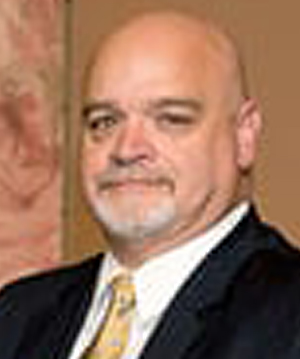You asked for it and we listened. In this column, we ask operators of all sizes and from all walks of the industry a question about their business and report their answers so you can assess how your own company compares to your peers. If you would like to participate, please email Rob Smentek at rob@chauffeurdriven.com for next issue’s question.
TOPIC: What is your standard procedure for handling credit card chargebacks from clients?
 Since we have started using Limo Anywhere for credit card processing, we have a secure link that we use for our client to fill out credit card information. If there’s a chargeback, we reply with the information they have provided with the secure link and hope for the best. Previously, I was using other merchant services they did not have secure links, and we were unable to win any cases with chargebacks.
Since we have started using Limo Anywhere for credit card processing, we have a secure link that we use for our client to fill out credit card information. If there’s a chargeback, we reply with the information they have provided with the secure link and hope for the best. Previously, I was using other merchant services they did not have secure links, and we were unable to win any cases with chargebacks.
Art Akhtar, Operation Manager
AA Limo Service in Los Angeles, Calif.
 Our standard procedure for handling credit card chargebacks from our customers includes a solid and transparent terms and conditions agreement that is electronically signed by the card holder for any damages, overages, etc. We have incorporated technology that checks for the risk level of fraud by identifying IP addresses, email addresses, along with ZIP code and CVV checks. Also, we maintain all email, text, call logs, as well as dispatch logs with any interactions with all our customers. Lastly, we work hard to provide superior customer service and provide service to our customers’ satisfaction to avoid chargebacks.
Our standard procedure for handling credit card chargebacks from our customers includes a solid and transparent terms and conditions agreement that is electronically signed by the card holder for any damages, overages, etc. We have incorporated technology that checks for the risk level of fraud by identifying IP addresses, email addresses, along with ZIP code and CVV checks. Also, we maintain all email, text, call logs, as well as dispatch logs with any interactions with all our customers. Lastly, we work hard to provide superior customer service and provide service to our customers’ satisfaction to avoid chargebacks.
Lenesia (Necee) Cooper, CEO
GoGo Party Bus in Atlanta, Ga.
 The first thing we do when we receive a chargeback is to reach out to the customer to discuss the situation. A chargeback is either caused by fraud or customer dissatisfaction. If the phone number is disconnected, it’s usually fraud. If there is a service issue, we try to work it out. If we can’t, we notify our processor who has a chargeback assistance program as well as a protection plan against financial losses caused by chargebacks. We record all chargebacks in a log to show the dollar amount, dispute code, and date to track how frequently they occur.
The first thing we do when we receive a chargeback is to reach out to the customer to discuss the situation. A chargeback is either caused by fraud or customer dissatisfaction. If the phone number is disconnected, it’s usually fraud. If there is a service issue, we try to work it out. If we can’t, we notify our processor who has a chargeback assistance program as well as a protection plan against financial losses caused by chargebacks. We record all chargebacks in a log to show the dollar amount, dispute code, and date to track how frequently they occur.
Harry Dhillon, President
Ecko Worldwide Transportation in Santa Clara, Calif.
 There are a few different steps that businesses can take to ensure a timely and satisfactory resolution:
There are a few different steps that businesses can take to ensure a timely and satisfactory resolution:
- Respond promptly: The timeframe for responding is usually limited, so make it a priority to address the issue ASAP.
- Review the reason for the chargeback: It may be related to fraud, dissatisfaction with the product or service, non-delivery, or other issues. Analyzing the reason will help you formulate an appropriate response.
- Contact the customer: Prompt communication and satisfactory resolution can prevent chargebacks altogether.
- Assess the validity of the chargeback: Determine if the customer’s claim is valid or if there is evidence to support your case. This evaluation will guide your response strategy.
- Prepare a detailed response: Present your case clearly and professionally, providing evidence to dispute the chargeback.
- Submit response within the timeframe: Late submissions may result in an automatic loss of funds.
Premier Transportation Services in Dallas, Texas
 Thankfully, chargebacks over the past 25-plus years in the transportation industry have been minimal. However, we must do our due diligence by contacting our credit card processing company first and asking the appropriate questions as to their chargeback process and the timing of the reply/notifications when one occurs. Deadlines are generally very often set in stone with very little flexibility. If you miss a deadline, the chargeback will most likely be approved and you will lose. Do your homework on the front end and it may very well save you substantial losses in the long run.
Thankfully, chargebacks over the past 25-plus years in the transportation industry have been minimal. However, we must do our due diligence by contacting our credit card processing company first and asking the appropriate questions as to their chargeback process and the timing of the reply/notifications when one occurs. Deadlines are generally very often set in stone with very little flexibility. If you miss a deadline, the chargeback will most likely be approved and you will lose. Do your homework on the front end and it may very well save you substantial losses in the long run.
Len Joseph, President
On The Town Limousines in Frederick, Md.
 Most of our reservations are for significant dollar amounts due to the nature of the bus business; therefore, we have developed a strict procedure to protect ourselves. It is a requirement for every client paying by credit card to fill out and sign the CC authorization form and the actual reservation contract. Depending on the event, most retail clients must prepay between 72 hours and up to two weeks in advance.
Most of our reservations are for significant dollar amounts due to the nature of the bus business; therefore, we have developed a strict procedure to protect ourselves. It is a requirement for every client paying by credit card to fill out and sign the CC authorization form and the actual reservation contract. Depending on the event, most retail clients must prepay between 72 hours and up to two weeks in advance.
Stefan Kisiov, Managing Partner
K&G Coach Line in Park Ridge, Ill.
 We have a system in place that captures service-related incidents and a dedicated team responsible for following up on each of them individually. Chargebacks are typically related to the reconciliation of one of these incidents and are noted in the history of the ride with details and approval of the credit. When this is the case, our billing team needs only respond and acknowledge with the CC processor. If there is a chargeback not associated with an incident, our billing team reaches out to the customer to understand the reason and the customer is given one week to respond, before we have to respond to the CC processor. The latter is the exception.
We have a system in place that captures service-related incidents and a dedicated team responsible for following up on each of them individually. Chargebacks are typically related to the reconciliation of one of these incidents and are noted in the history of the ride with details and approval of the credit. When this is the case, our billing team needs only respond and acknowledge with the CC processor. If there is a chargeback not associated with an incident, our billing team reaches out to the customer to understand the reason and the customer is given one week to respond, before we have to respond to the CC processor. The latter is the exception.
Shariff McMichael, President & CEO
Dav El/BostonCoach in Everett, Mass.
 Collect evidence to support your case, like reservation confirmations, email records, credit card authorization forms with matching IDs, any emails, chats, or call logs related to the disputed service, GPS records with timestamps, and if possible, pictures from dashboard cameras showing the customer in the vehicle using the service.
Make sure you have clear policies and procedures in place. Inform customers about potential extra charges when they book, such as waiting times, cleaning fees, vehicle damages, or smoking fees. This can help avoid chargebacks in the future.
Reach out to the customer to understand their concerns and try to resolve the issue directly. Good communication often leads to a satisfactory resolution.
After the dispute, keep an eye on the chargeback process, follow up if needed, and provide any additional requested information.
Learn from the experience and identify common reasons for chargebacks. Take steps to prevent them before they happen. Implement security measures to detect potential fraud and train your staff accordingly.
Collect evidence to support your case, like reservation confirmations, email records, credit card authorization forms with matching IDs, any emails, chats, or call logs related to the disputed service, GPS records with timestamps, and if possible, pictures from dashboard cameras showing the customer in the vehicle using the service.
Make sure you have clear policies and procedures in place. Inform customers about potential extra charges when they book, such as waiting times, cleaning fees, vehicle damages, or smoking fees. This can help avoid chargebacks in the future.
Reach out to the customer to understand their concerns and try to resolve the issue directly. Good communication often leads to a satisfactory resolution.
After the dispute, keep an eye on the chargeback process, follow up if needed, and provide any additional requested information.
Learn from the experience and identify common reasons for chargebacks. Take steps to prevent them before they happen. Implement security measures to detect potential fraud and train your staff accordingly.
Ariadna Noches, Vice President – Operations
Mundi Chauffeured Services in Miami, Fla.
 We train our staff to ask the right questions and identify issues with potential new clients. For the most part we do not get many chargebacks, however when it does happen, we take the time to find the source of the issue. Most of the time we find it has something to do with a cancellation or a stolen credit card. All chargeback issues tend to be great training moments for our weekly meetings and slowly have become triggers to build stronger policies. We will get contracted signatures for all reservations above $1,000 to ensure the payment that will ease the chargeback process.
We train our staff to ask the right questions and identify issues with potential new clients. For the most part we do not get many chargebacks, however when it does happen, we take the time to find the source of the issue. Most of the time we find it has something to do with a cancellation or a stolen credit card. All chargeback issues tend to be great training moments for our weekly meetings and slowly have become triggers to build stronger policies. We will get contracted signatures for all reservations above $1,000 to ensure the payment that will ease the chargeback process.
Gus Ortis, Director of Sales
Executive Transportation in Minneapolis, Minn.
 Credit card chargebacks are probably the single most frustrating thing that we have to deal with. I’ve reached out to our processor in the past, given them everything we have, and we are rarely successful with winning them. Thankfully, we don’t have chargebacks often. We provide copies of emails (when applicable) between us and the client, we provide copies of confirmations and GPS coordinates, and anything else we can. And many times, it’s not enough because we don’t have an imprint or swipe of the card. In our world, it’s just not practical. We are considering Docusign, but hope that our software company will integrate something like it.
Credit card chargebacks are probably the single most frustrating thing that we have to deal with. I’ve reached out to our processor in the past, given them everything we have, and we are rarely successful with winning them. Thankfully, we don’t have chargebacks often. We provide copies of emails (when applicable) between us and the client, we provide copies of confirmations and GPS coordinates, and anything else we can. And many times, it’s not enough because we don’t have an imprint or swipe of the card. In our world, it’s just not practical. We are considering Docusign, but hope that our software company will integrate something like it.
Tracy Salinger, President
Unique Limousine in Harrisburg, Pa.
 We got two chargebacks in 2022 and both were retainers for limo rentals. We charge a nonrefundable 20 percent deposit, and the customer cancelled the reservations for no reason. They were aware of policy, but then decided to do a chargeback with the credit card company. Since all reservations are made strictly on the Limo Anywhere Lead Quote Close system and signed through the credit card capture system, we won back the chargebacks. As a result, we require all clients go through the online process for amounts more than $500. It is a bit more paperwork, but in the end, it is worth it to see the money come back into your account.
We got two chargebacks in 2022 and both were retainers for limo rentals. We charge a nonrefundable 20 percent deposit, and the customer cancelled the reservations for no reason. They were aware of policy, but then decided to do a chargeback with the credit card company. Since all reservations are made strictly on the Limo Anywhere Lead Quote Close system and signed through the credit card capture system, we won back the chargebacks. As a result, we require all clients go through the online process for amounts more than $500. It is a bit more paperwork, but in the end, it is worth it to see the money come back into your account.
Jess Sandhu, Director of Operations
A&A Limousine & Bus Service in Kenmore, Wash.
 We keep all reservations on an email thread and the clients must confirm the trips. In the event of a chargeback, credit card companies always go with us because of the emails.
We keep all reservations on an email thread and the clients must confirm the trips. In the event of a chargeback, credit card companies always go with us because of the emails.
Cliff Wright, President & CEO
Royal Transportation Group in Orlando, Fla.
We’ve loved hearing your answers to our benchmarking questions—but we always welcome suggestions for future topics, too!
Send an email to rob@chauffeurdriven.com you just might see your query answered in our next e-News.
[CD0623]

